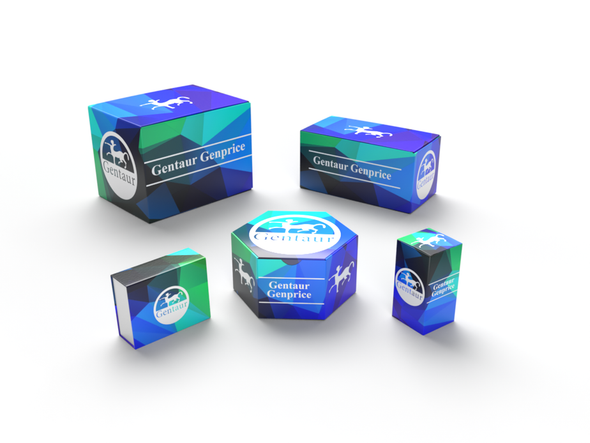740
Human Protein Wnt-10a (WNT10A) ELISA Kit | AE11158HU
- SKU:
- 740-AE11158HU
- Availability:
- Usually ships in 5 working days
Description
Human Protein Wnt-10a (WNT10A) ELISA Kit | AE11158HU | Gentaur UK, US & Europe Distribution
Species Reactivity: Human (Homo sapiens)
Abbreviation: WNT10A
Alternative Name: FLJ14301; SSPS;
Application: ELISA
Range: 0.156-10 ng/mL
Sensitivity: 0.061 ng/mL
Intra-Assay: ≤4.7%
Inter-Assay: ≤7.5%
Recovery: 0, 85
Sample Type: Serum, Plasma, Other biological fluids
Detection Method: Sandwich
Analysis Method : Quantitive
Test Principale: This assay employs a two-site sandwich ELISA to quantitate WNT10A in samples. An antibody specific for WNT10A has been pre-coated onto a microplate. Standards and samples are pipetted into the wells and anyWNT10A present is bound by the immobilized antibody. After removing any unbound substances, a biotin-conjugated antibody specific for WNT10A is added to the wells. After washing, Streptavidin conjugated Horseradish Peroxidase (HRP) is added to the wells. Following a wash to remove any unbound avidin-enzyme reagent, a substrate solution is added to the wells and color develops in proportion to the amount of WNT10A bound in the initial step. The color development is stopped and the intensity of the color is measured.
Product Overview: WNT10B is a member of the WNT gene family. It may be involved in breast cancer, and its protein signaling is likely a molecular switch that governs adipogenesis. This protein is 96% identical to the mouse Wnt10b protein at the amino acid level. This gene is clustered with another family member, WNT1, in the chromosome 12q13 region. The human WNT10B sequence is 88% and 95% identical to the mouse gene at nucleotide and amino acid levels, respectively. WNT10B expression was not observed in normal and benign proliferations of human breast tissue but was found to be elevated in 3 of 50 primary breast carcinomas. Southern blot analysis of the carcinoma expressing the highest level of WNT10B showed no amplification or rearrangement of the gene.
Stability: The stability of ELISA kit is determined by the loss rate of activity. The loss rate of this kit is less than 5% within the expiration date under appropriate storage condition. The loss rate was determined by accelerated thermal degradation test. Keep the kit at 37°C for 4 and 7 days, and compare O.D.values of the kit kept at 37°C with that of at recommended temperature. (referring from China Biological Products Standard, which was calculated by the Arrhenius equation. For ELISA kit, 4 days storage at 37°C can be considered as 6 months at 2 - 8°C, which means 7 days at 37°C equaling 12 months at 2 - 8°C) .






